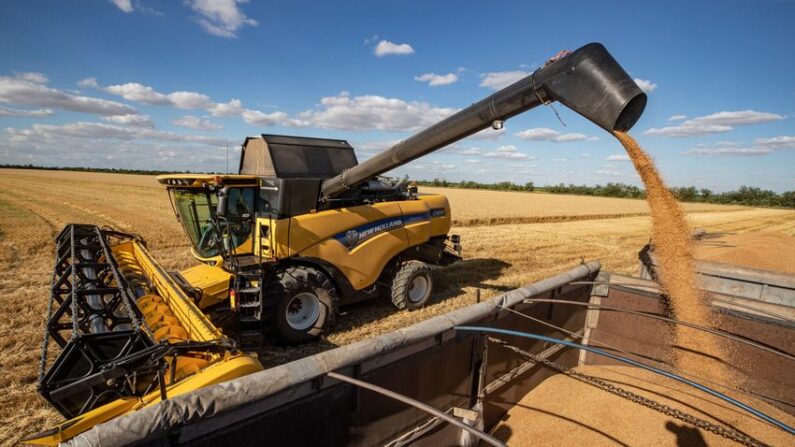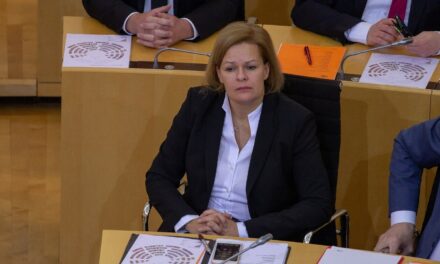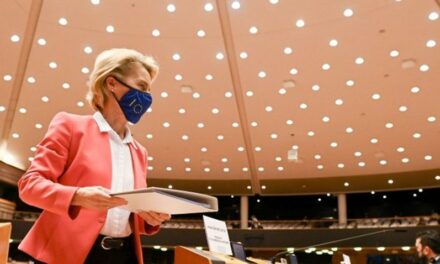Slovakia has already taken action: The processing and use of Ukrainian grain in Slovakia is banned due to its content of harmful pesticides. The authorities seized heavily contaminated items that are not suitable for human or animal consumption. The question arises as to why the poisoned grain poured into the Union duty-free since the war and mainly sold on the markets of countries neighboring or close to Ukraine was not investigated earlier, and what health-damaging effects it might have on the population?
The processing and use of Ukrainian grain will be banned in Slovakia due to its harmful pesticide content, announced Samuel Vlcan, head of the Slovak Ministry of Agriculture, at a press conference in Bratislava on Friday.
The Slovakian measure was preceded by the fact that the Slovak Animal Health and Food Safety Authority (SVPS) found a plant protection product in the sample that was harmful to health and prohibited in the European Union during an inspection of 1,500 tons of wheat from the Ukraine at the Kolárovo mill in Gúta, wrote the Slovak public service TASR. news agency with reference to the ministry's statement.
Not even MTI, only napi.hu , wrote about the extent of this contamination:
"The pesticide content of the tested Ukrainian wheat exceeded the permitted level in Slovakia by 1,000 percent. According to the authorities, the confiscated goods are not suitable for human consumption, but also for animal consumption.
Knowing the results of the investigation, the Slovak Ministry of Agriculture and Rural Development issued a decree, according to which the processing of Ukrainian grain and flour already imported into the country, as well as its inclusion in the food production and feeding processes, is strictly prohibited.
The Slovak ministry announced in connection with the investigation: all EU member states will be informed of its results, and all grain and flour of Ukrainian origin already in storage in the country will be subjected to a similar investigation. In connection with the provision prohibiting the use of Ukrainian grain, it was written: in the current situation, the ministry does not recommend the import of any Ukrainian grain or products made from it.
The Ministry of Agriculture is only concerned about economic damage
The agriculture ministers of the Central European member states suffering from Ukrainian imports discussed the need to limit the duty-free status of Ukrainian agricultural products. There is complete agreement that the joint action towards the European Commission must be continued, as the problem of these countries cannot be dealt with without EU-level tools, said Minister of Agriculture István Nagy after the meeting of the ministers of agriculture of the member states neighboring Ukraine on Friday, according to the announcement of the Ministry of Agriculture (AM).
According to István Nagy, in the case of wheat, corn, sunflower, rapeseed and soy
once again, it is justified to limit the exemption from customs duties, and it should only be provided to Ukraine within the framework of the previously applied quantitative quotas. In view of the significant increase in imports, Hungary proposes to extend the scope of the quota system to sunflower seeds as well
says the announcement.
Hungary would at least like to achieve that
the European Union should impose temporary additional duties on grain arriving from Ukraine in the event that the destination of the goods arriving via the Solidarity Corridor is a member state bordering Ukraine. In addition to all this, in order to manage the situation in the short term and to set the market in motion, the Commission is asked to
for humanitarian purposes, the EU buys up stored grain grown in bordering member states and unsalable due to the price drop caused by imports.
Transit shipments would need to operate an EU monitoring and security system. Hungary will order new, even more comprehensive and stricter inspections of Ukrainian grain at the border, the minister added.
According to the announcement, the affected countries will send their new solution proposals to the European Commission in a joint letter, which will be discussed at the next meeting of the Agriculture and Fisheries Council.
The minister expressed his hope that Brussels will not differentiate between the "border" countries, but will accept the proposals of the cooperating countries and put a comprehensive and unified solution on the table. We are in solidarity with Ukraine, but we cannot endanger the livelihood of Hungarian farmers and Hungarian agriculture - stated István Nagy, according to the announcement.
Civilek.info / MTI / napi.hu
Photo: MTI/EPA/Sergej Ilnytskyi












